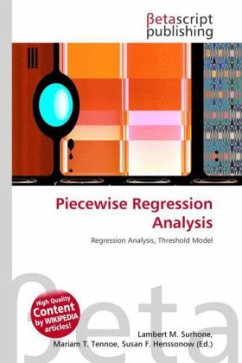High Quality Content by WIKIPEDIA articles! In statistics, standardized coefficients or beta coefficients are the estimates resulting from an analysis performed on variables that have been standardized so that they have variances of 1. This is usually done to answer the question of which of the independent variables have a greater effect on the dependent variable in a multiple regression analysis, when the variables are measured in different units of measurement (for example, income measured in dollars and family size measured in number of individuals). Before fitting the multiple regression equation, all variables (independent and dependent) can be standardized by subtracting the mean and dividing by the standard deviation. The standardized regression coefficients, then, represent the change in terms of standard deviations in the dependent variable that result from a change of one standard deviation in an independent variable. Some statistical software packages like PSPP/SPSS report them automatically, labeling them "Beta" while the ordinary unstandarized coefficients are labeled "B". Others, like DAP/SAS, provide them as an option and label them "Standardized Coefficient".
Bitte wählen Sie Ihr Anliegen aus.
Rechnungen
Retourenschein anfordern
Bestellstatus
Storno








